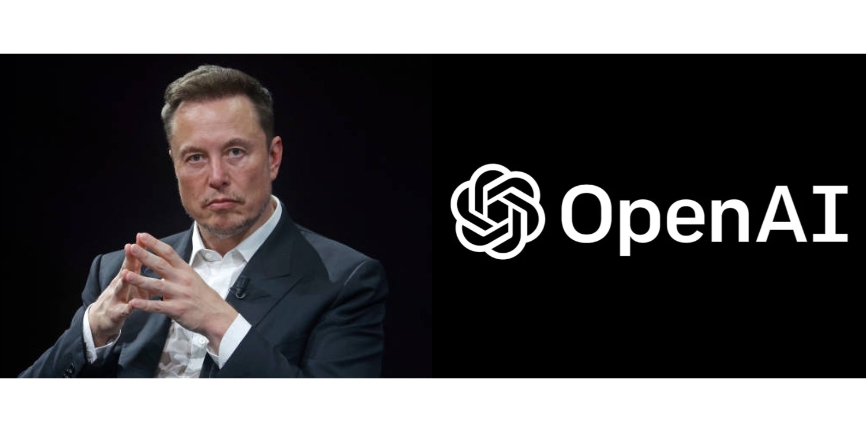
Billionaire investor Elon Musk’s lawsuit that was filed late on Thursday in California Superior Court in San Francisco, against OpenAI, the world’s famous face of generative AI and its co-founders, Sam Altman and Greg Brockman, has claimed they abandoned the startup’s original mission to develop artificial intelligence for the benefit of humanity and not for profit.
This Elon Musk’s lawsuit culminated long-simmering disapproval of the startup he co-founded. According to Mr. Musk, OpenAI’s multi-billion-dollar relationship with Microsoft amounted to a betrayal of the company’s original promise to methodically develop artificial intelligence and make the technology accessible to the general public.
He stated that in 2015 when the company convinced him to assist in founding and funding the startup, the mission was that it would be a charitable organization dedicated to fending off Google’s competitive threat. According to Elon Musk’s lawsuit, OpenAI was bound under the founding agreement to make its technology “freely available” to the general public.
“In reality, however, OpenAI, Inc. has been transformed into a closed-source de facto subsidiary of the largest technology company in the world, Microsoft. Under its new board, it is not just developing but is actually refining an Artificial General Intelligence (AGI) to maximize profits for Microsoft, rather than for the benefit of humanity,” said the lawsuit filed on Thursday.
The 35-page complaint is the most recent development in the long-simmering dispute between the former business partners. In 2018, Mr. Musk resigned from the board of OpenAI amid a power conflict. The business later grew to prominence in the generative AI space and developed ChatGPT, a chatbot that can generate text and reply to inquiries in a style resembling that of a human. Mr. Musk, who established xAI, his own artificial intelligence startup last July, claimed that OpenAI was not paying enough attention to the dangers of the technology.
Musk expressed worries about OpenAI’s priority focus in the last year, which prompted the lawsuit. Between 2016 and September 2020, Musk gave the foundation more than $44 million, and was OpenAI’s biggest contributor for the first few years, according to the lawsuit. However, he was offered a share in the startup’s commercial division, but he declined it out of moral conviction.
The case, which calls for a jury trial, charges Mr. Altman and OpenAI with unfair business practices, breach of contract and trust. Mr. Musk is demanding that Mr. Altman and others reimburse him for the money he donated to the company, as well as that OpenAI be forced to make its technology available to others. Another defendant listed is OpenAI’s president, Greg Brockman.
“The internal details of GPT-4 are known only to OpenAI and, on information and belief, to Microsoft. GPT-4 is hence the opposite of ‘open AI,’”Musk says in the suit. “And it is closed for proprietary commercial reasons: Microsoft stands to make a fortune selling GPT-4 to the public, which would not be possible if OpenAI—as it is required to do—makes the technology freely available to the public.”
“Contrary to the founding agreement, defendants have chosen to use GPT-4 not for the benefit of humanity, but as proprietary technology to maximize profits for literally the largest company in the world,” he adds.
Also in the lawsuit, Musk talked about a leadership shakeup at OpenAI last year. He said this forced Microsoft to intervene and compel the board members who were trying to remove him to resign. Musk asserts that the existing board members are no longer researchers and experts who understand and support the technology.
“OpenAI, Inc.’s once carefully crafted non-profit structure was replaced by a purely profit-driven CEO and a board with inferior technical expertise in AGI and AI public policy. The board now has an observer seat reserved solely for Microsoft,” Musk claims.
However, top OpenAI officials refuted certain assertions made in Elon Musk’s lawsuit. “It was never going to be a cakewalk, “Altman said. “The attacks will keep coming.”
By filing the complaint, Musk hopes to force OpenAI to stay true to its founding principles and prevent it from profiting from technology created for the nonprofit organization’s advantage or that of its partners, such as Microsoft, or OpenAI officials.
In addition, the lawsuit asks the court to declare that artificial general intelligence (AGI) systems such as GPT-4 and other cutting-edge models such as Q* (pronounced as Q Star) under development are artificial intelligence beyond the scope of Microsoft’s OpenAI license.